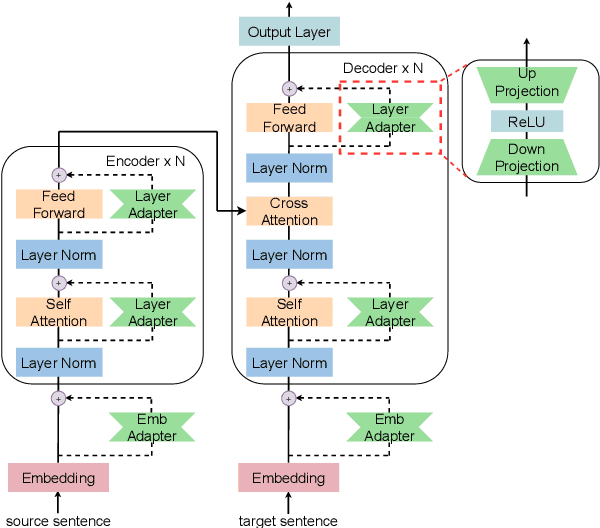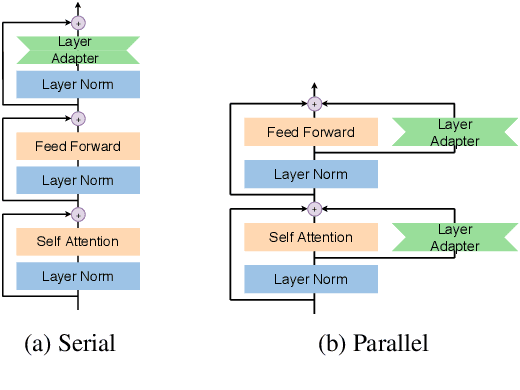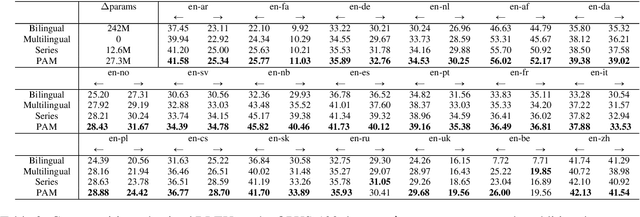Serial or Parallel? Plug-able Adapter for multilingual machine translation
Paper and Code
Apr 16, 2021



Developing a unified multilingual translation model is a key topic in machine translation research. However, existing approaches suffer from performance degradation: multilingual models yield inferior performance compared to the ones trained separately on rich bilingual data. We attribute the performance degradation to two issues: multilingual embedding conflation and multilingual fusion effects. To address the two issues, we propose PAM, a Transformer model augmented with defusion adaptation for multilingual machine translation. Specifically, PAM consists of embedding and layer adapters to shift the word and intermediate representations towards language-specific ones. Extensive experiment results on IWSLT, OPUS-100, and WMT benchmarks show that \method outperforms several strong competitors, including series adapter and multilingual knowledge distillation.
 Add to Chrome
Add to Chrome Add to Firefox
Add to Firefox Add to Edge
Add to Edge